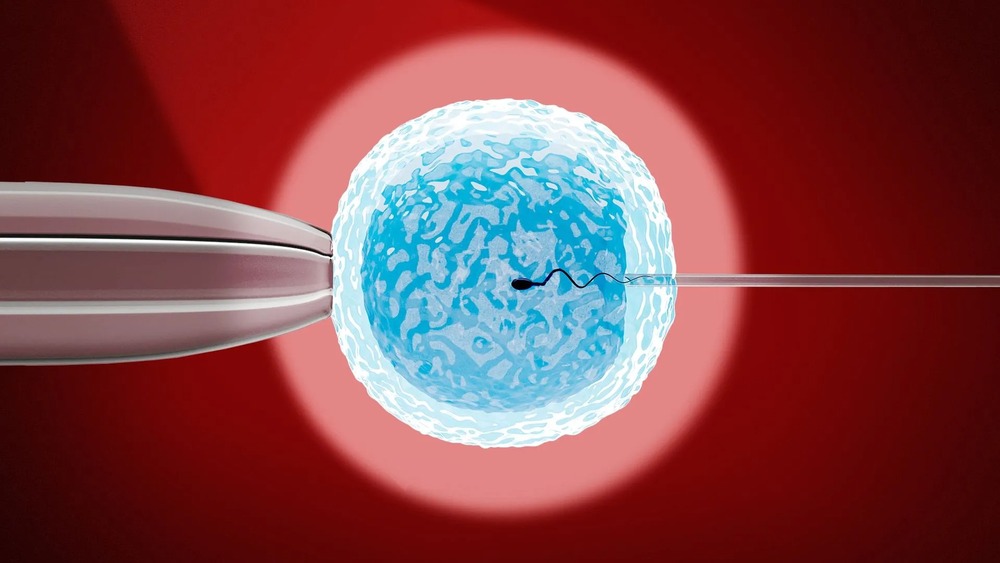In vitro fertilization (IVF) is a journey filled with hope, anticipation, and often, emotional turbulence. For many couples, the dream of parenthood can feel like a distant star, shining brightly yet frustratingly out of reach. As you navigate this complex process, it’s essential to prioritize your mental well-being. In this blog, we’ll explore the emotional challenges of IVF, backed by statistics, and provide practical strategies to help you stay mentally strong throughout your journey. 🌈

Understanding the Emotional Impact of IVF
The emotional toll of IVF can be significant. According to a study published in the journal Fertility and Sterility, approximately 30% of women undergoing IVF experience high levels of anxiety and depression. This statistic highlights the importance of mental health support during this challenging time.
Emotional Stages of IVF
The IVF journey can be likened to an emotional rollercoaster, with various stages that evoke different feelings. Here’s a breakdown of the common emotional stages experienced during IVF:
| Stage | Emotions Experienced | Duration |
|---|---|---|
| Pre-Treatment | Hope, Anxiety, Uncertainty | 1-2 weeks |
| Stimulation | Excitement, Stress | 10-14 days |
| Egg Retrieval | Relief, Fear | 1 day |
| Embryo Transfer | Anticipation, Nervousness | 1 day |
| Waiting for Results | Hope, Anxiety, Despair | 2 weeks |
| Outcome | Joy (if successful), Grief (if not) | Varies |
As you can see, each stage brings its own set of emotions, making it crucial to develop coping strategies to manage these feelings effectively.
Coping Strategies for Mental Strength
-
Educate Yourself: Knowledge is power. Understanding the IVF process can help alleviate some of the anxiety associated with the unknown. Websites like Resolve offer valuable resources and support for those undergoing fertility treatments.
-
Build a Support Network: Surround yourself with supportive friends, family, or even online communities. Sharing your experiences can help you feel less isolated. Consider joining forums or social media groups dedicated to IVF support.
-
Practice Mindfulness and Relaxation Techniques: Engaging in mindfulness practices such as meditation, yoga, or deep-breathing exercises can help reduce stress. A study from the Journal of Psychosomatic Obstetrics & Gynecology found that women who practiced mindfulness during IVF reported lower levels of anxiety.
-
Seek Professional Help: Don’t hesitate to reach out to a mental health professional who specializes in fertility issues. Therapy can provide a safe space to express your feelings and develop coping strategies.
-
Stay Physically Active: Regular exercise can boost your mood and reduce stress. Aim for at least 30 minutes of moderate exercise most days of the week. Activities like walking, swimming, or cycling can be beneficial.
The Role of Nutrition
Nutrition also plays a vital role in mental health. A balanced diet can help improve your mood and energy levels. Here’s a simple table outlining foods that can support mental well-being:
| Food Group | Benefits | Examples |
|---|---|---|
| Fruits & Vegetables | Rich in vitamins and antioxidants | Berries, Spinach, Kale |
| Whole Grains | Stabilizes blood sugar | Quinoa, Brown Rice |
| Lean Proteins | Supports brain health | Chicken, Fish, Legumes |
| Healthy Fats | Boosts mood and cognitive function | Avocados, Nuts, Olive Oil |
Incorporating these foods into your diet can help you feel more energized and emotionally balanced during your IVF journey.
The Importance of Communication
Open communication with your partner is essential. Discussing your feelings, fears, and hopes can strengthen your relationship and provide mutual support. It’s also important to communicate with your healthcare team. Don’t hesitate to ask questions or express concerns about your treatment plan.
The Power of Positive Affirmations
Positive affirmations can be a powerful tool in maintaining mental strength. Here are a few examples to consider:
- "I am strong and capable of handling this journey."
- "Every step I take brings me closer to my dream."
- "I am surrounded by love and support."
Repeating these affirmations can help shift your mindset and foster resilience.
Conclusion
The IVF journey is undoubtedly an emotional rollercoaster, but with the right strategies and support, you can navigate it with strength and grace. Remember, it’s okay to feel a range of emotions, and seeking help is a sign of strength, not weakness.
For more resources and support, consider visiting FertilityIQ, where you can find information on clinics, treatments, and community support.
As you embark on this journey, prioritize your mental health, lean on your support network, and remember that you are not alone. 🌟 Embrace the journey, and keep your eyes on the prize—your dream of parenthood is worth the ride!




